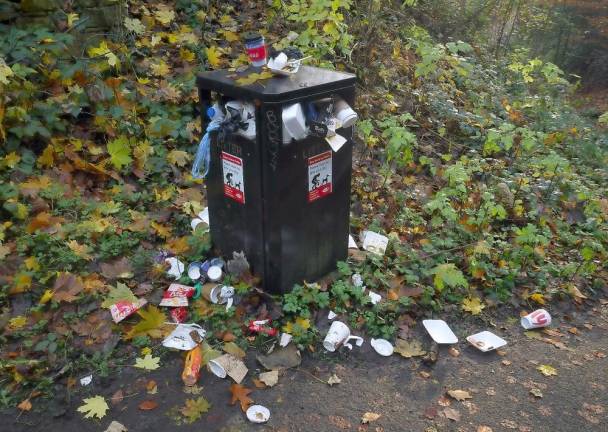Pennsylvanians asked to ‘fight dirty’ in new Anti-Litter Campaign
Environment. Governor Tom Wolf and Keep Pennsylvania Beautiful representatives launched an anti-litter campaign. Supporting the campaign, applications open for the new Young Ambassadors Program.

Harrisburg, PA – The Wolf Administration recently joined Keep Pennsylvania Beautiful representatives to announce the launch of the statewide anti-litter campaign, “PA Fights Dirty: Every Litter Bit Matters.” A litter-prevention campaign was among many state and local government, stakeholder, business, and legislative recommendations in the commonwealth’s first Litter Action Plan released last year.
“As a commonwealth we recognize we need to change behavior, not just clean up the mess,” PennDOT Secretary Yassmin Gramian said.
“Every Litter Bit Matters” calls upon Pennsylvanians to ensure every piece of their trash, regardless of size, is disposed of properly. The campaign is based on research that shows only 3% of Pennsylvanians approve of littering, yet 40 to 50 percent litter. “Every Litter Bit Matters” will educate Pennsylvanians on situational littering, such as leaving trash on the ground next to a full can or in a stadium, as well as remind Pennsylvanians that litter of all sizes stacks up and creates problems.
“Litter isn’t just ugly to look at. It can cause environmental contamination and put public health at risk,” said Department of Environmental Protection Acting Secretary Ramez Ziadeh. “Litter can leach chemicals into our land and water, and act as breeding grounds for mosquitoes that carry West Nile Virus.”
PA Fights Dirty was developed as part of the Wolf Administration’s Litter Action Plan and in response to the 2019 Pennsylvania Litter Research Study, which found Pennsylvania has more than 500 million pieces of litter on its roadways. More than 85 percent of these pieces are less than four inches in size. “Every Litter Bit Matters” encourages Pennsylvanians to properly dispose of even their smallest pieces of trash.
In addition to improving aesthetics and pride, a goal of “Every Litter Bit Matters” is to reduce litter-related costs, which are currently around $350 million each year.
“As we work hand-in-hand with local community leaders, they frequently mention the challenges they face with litter – a challenge that impacts property values, business attraction, quality of life, health, and so much more,” said DCED Acting Secretary Neil Weaver. “By preventing littering from occurring, we are saving communities valuable time and money in litter removal.”
The event also featured the state’s Young Ambassadors Program, a new partnership with PennDOT and Keep Pennsylvania Beautiful (KPB). The program – which starts accepting applications today – was recommended in the Litter Action Plan and invites Pennsylvania rising tenth through twelfth grade students to help keep the commonwealth clean.
The students – chosen through a competitive process – will commit to nine months of service in representing and upholding the mission and values of KPB. Other responsibilities include attending a virtual orientation, four virtual education and training workshops, and up to two virtual networking events, organizing and participating in at least one community cleanup event through Pick Up Pennsylvania, conducting one community education event targeting youth in the student’s community and promoting participation on social media.
With education and engagement as critical pieces in litter prevention, Pennsylvania State Police’s work to enforce litter laws was also discussed. From January 1 through June 30 this year, PSP personnel issued 661 citations and 562 warnings in enforcing anti-littering laws.
“Littering is 100 percent preventable with fines beginning at $300. The public is encouraged to report any litter violation they witness by contacting their local law enforcement agency,” said Pennsylvania State Police Commissioner Robert Evanchick.
Litter isn’t just ugly to look at. It can cause environmental contamination and put public health at risk. Litter can leach chemicals into our land and water, and act as breeding grounds for mosquitoes that carry West Nile Virus.- Department of Environmental Protection Acting Secretary Ramez Ziadeh